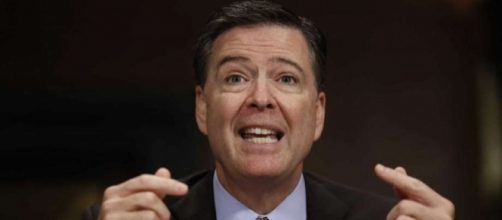Fbi Director and registered Republican James Comey, standing before lawmakers Wednesday from both parties, defended his actions to alert Congress about an investigation into Hillary Clinton’s email – just days before the 2016 Presidential Election.
Comey’s formal reveal to Congress that email messages existed that were deemed by him to be “pertinent to the investigation of Secretary Clinton's email server” threw an eleventh-hour pall over the election, vaulting Donald Trump into the Oval Office.
Comey feels ill over his actions, but says would do it again
Despite the admission from the former US Deputy Attorney General that he feels “mildly nauseous” over the notion that his actions swayed the election, the 56-year-old Comey said he stands by his decision.
“It was a hard choice, I still believe in retrospect the right choice,” Comey told senators gathered at a judiciary oversight committee. “I can't consider for a second whose political fortunes will be affected.”
DOJ sharply warned Comey not to send his letter to Congress
Still, it would be incongruous to think that Comey would be blinded to the political impact his actions would have. Even his own Justice Department policy – as well as lawyers within the DO – sternly warned Comey about proceeding with his planned letter to Congress.
Despite the warning from senior Justice Department officials, Comey went rogue.
According to an October 2016 article from the Washington Post, an unnamed Justice Department official plainly stated that Director Comey “understood” the long-standing policy of the department not to take any action that could be construed as election manipulation.
“He heard it from Justice leadership,” the official said. “It was conveyed to the FBI, and Comey made an independent decision to alert the Hill. He is operating independently of the Justice Department. And he knows it.”
Comey ended the investigation, then reopened it two weeks before the election
In July of 2016, Comey concluded that the FBI would not be filing any criminal charges against Clinton over her email controversy.
Comey conceded that Clinton and her aides had been “extremely careless,” but ultimately the FBI decided that “no reasonable prosecutor” would pursue charges.
In spite of the Attorney General’s office considering the issue closed, less than two weeks prior to the election, Comey sent his inflammatory letter, even though the FBI had not as of yet received an approved warrant to even pull and review any of the questionable emails. At the time, Comey claimed that not advising Congress “would be misleading to the American people.”
Clinton blames Comey for the election loss
Clinton herself this week also directly connected her loss to Comey’s obtuse decision-making.
“I was on the way to winning until a combination of Jim Comey’s letter on October 28 and Russian WikiLeaks raised doubts in the minds of people who were inclined to vote for me but got scared off,” Clinton said.


